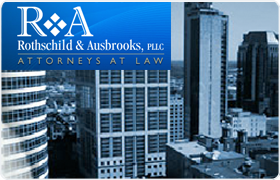Davidson County, TN Bankruptcy & Debt Lawyers
Sponsored Law Firm
-
 x
x

Click For More Info:
-
Rothschild & Ausbrooks, PLLC
1222 16th Ave. South, Suite 12 Nashville, TN 37212» view mapBankruptcy Filing, Chapter 7, Chapter 13 You Are Not Alone. We Can Help.
Our law firm encourages communication. We respond to calls and e-mails promptly. This is your case, and you will be involved every step of the way.
800-966-8531
Mary Beth Ausbrooks
✓ VERIFIEDBankruptcy & Debt, Consumer Bankruptcy
Board Certified Specialist in Consumer Bankruptcy
For more than three decades, the bankruptcy attorneys at Rothschild & Ausbrooks, PLLC, in Nashville, Tennessee, have been devoted to helping individua... (more)
Ben M. Rose
Business Organization, Collection, Consumer Protection, Contract
Status: In Good Standing
FREE CONSULTATION
CONTACTMichael B. Schwegler
Personal Injury, Litigation, Criminal, Bankruptcy & Debt
Status: In Good Standing
FREE CONSULTATION
CONTACTC. Bennett Harrison
Dispute Resolution, Intellectual Property, Entertainment, Commercial Bankruptcy
Status: In Good Standing Licensed: 48 Years
Charles Ward Faquin
Bankruptcy & Debt, Litigation, Guardianships & Conservatorships, Social Security
Status: Suspended Licensed: 16 Years
John Charles Tishler
Real Estate, Lawsuit & Dispute, Health Care, Bankruptcy
Status: In Good Standing Licensed: 37 Years
Joseph Robert Prochaska
Litigation, Natural Resources, Administrative Law, Business, Reorganization
Status: In Good Standing
Michael Edward Collins
Insurance, Business, Bankruptcy, Bankruptcy & Debt
Status: In Good Standing Licensed: 32 Years

 Mary Ausbrooks Nashville, TN
Mary Ausbrooks Nashville, TN Contact UsCall or Email
Contact UsCall or Email LinkedIn
LinkedIn

